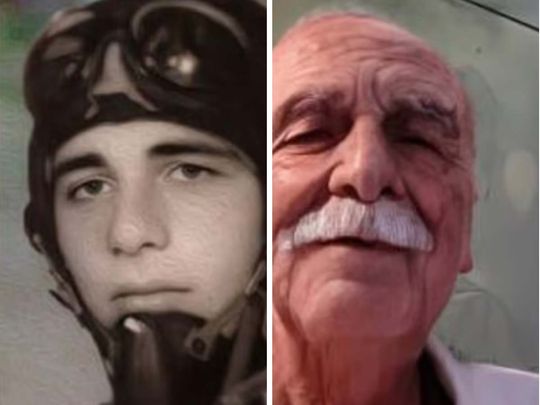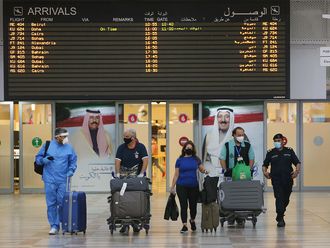
Dubai: Nearly 43 years ago, Syrian pilot Raheed Al Tatari made a decision that would alter the course of his life forever.
At just 27 years old, he refused a military order to bomb the city of Hama during the violent crackdown on protests and rebellion in the late 1970s and early 1980s.
His refusal to turn his weapon on fellow Syrians came at a steep personal cost — decades of imprisonment and separation from his family. On Monday, he finally tasted freedom.
In the face of mounting pressure to comply with orders during what became known as the Hama Massacre —engineered by then-President Hafez Al Assad — Al Tatari stood firm.
He refused to participate in the bombing of civilians and rejected demands to inform on his colleagues. His principled stance led to his immediate arrest, expulsion from military service, and a short imprisonment.
After a brief release, during which he travelled to Jordan and Egypt, Al Tatari returned to Damascus. But freedom was fleeting. In 1981, the authorities detained him again, this time without trial, condemning him to an unthinkable 43 years in detention.
At the time of his second arrest, Al Tatari’s only child was still in his mother’s womb. Over the years, he met his son only once during the boy’s teenage years.
During his time in jail, Al Tatari was moved from one prison to another during which he endured the harsh conditions of Syria’s most notorious detention facilities, including the Military Intelligence Directorate, Mezzeh Military Prison, Tadmor Prison, Sednaya Prison and finally Adra Central Prison.
Al Tatari was released from Adra Prison, a free man for the first time in over four decades. His release followed the fall of Al Assad regime and the rise of opposition forces who now hold power in Syria.










